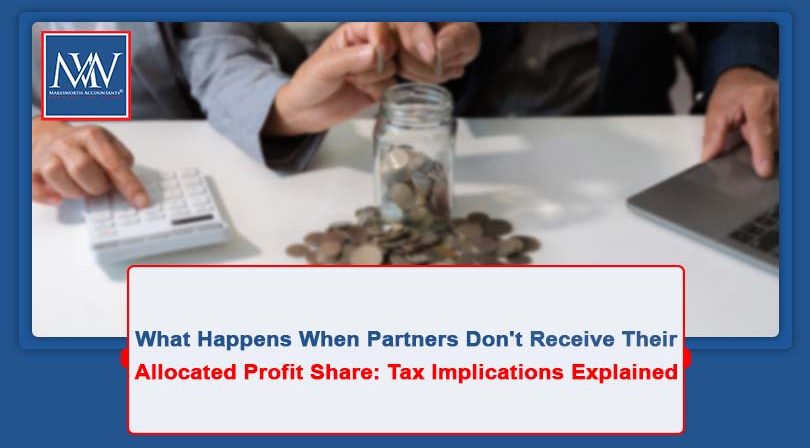
What Happens When Partners Don’t Receive Their Allocated Profit Share: Tax Implications Explained
Taxation in a Partnership: Who Pays What?
In the UK, a partnership is not treated as a separate legal entity. Instead, the individual partners are responsible for tax and National Insurance contributions (NICs) based on their share of the partnership’s profits or losses.
Each partner is taxed as if they are a sole trader, paying Income Tax on their share. If a partner is a limited company, its share is taxed under Corporation Tax rules.
How Profits Are Shared Between Partners
Under the Partnership Act 1890, profits and losses are divided equally between the partners unless there’s a formal agreement specifying a different profit sharing ratio (PSR).
Although there’s no legal requirement for a written partnership agreement, having one helps prevent misunderstandings—especially when contributions or workloads vary significantly between partners.
Where a written agreement exists, partners can adopt any PSR they choose, even adjusting it annually—so long as it’s agreed before the accounting year ends. Retrospective changes to the PSR after the year-end are not permitted, but this restriction can be managed by including flexible language in the agreement, such as:
“…as the partners shall from time to time decide.”
Why Might the PSR Change?
Adjustments to the PSR may be made for several reasons, such as changes in workload, capital contributions, or partner roles.
However, changing the PSR affects each partner’s tax position. When a change occurs mid-year, profits or losses must be time-apportioned accordingly before being allocated to the partners.
What if a Partner Disputes Their Allocated Profit Share?
Situations can arise where a partner disputes the profit share reported on the partnership tax return, especially if they didn’t actually receive the amount shown.
This issue was explored in the First-tier Tribunal cases of Morgan v HMRC and Self v HMRC (2009). In both cases, the departing partners received final payments that were treated by the partnership as profit allocations. The partners disagreed and contested HMRC’s tax assessments.
The tribunal ruled in HMRC’s favour, confirming that the partnership return is legally binding for tax purposes. This means it determines:
-
The amount allocated to each partner, and
-
Whether or not a partner actually received their share
Following these rulings, HMRC updated the Taxes Management Act 1970 and its internal guidance (EM7522) to reflect that a partner’s personal tax return must match the partnership return.
What to Do If There’s a Dispute at Filing Time
If a partner genuinely disagrees with their allocated profit share and the matter isn’t resolved before the filing deadline, HMRC allows the following approach:
-
Report the profit amount you believe is correct on your personal return.
-
Use the ‘Additional information/white space’ section to:
-
Declare the figure as shown on the partnership statement.
-
Show an adjustment (deduction or addition) of the disputed amount.
-
Provide an explanation outlining why you believe the allocation is incorrect.
-
Practical Tip
When white space disclosures are made in good faith, HMRC has confirmed it will not treat the personal return as incorrect. This offers a practical workaround for unresolved disputes without immediate penalty.
Conclusion
Profit-sharing disagreements in partnerships can be complex and carry significant tax consequences. Ensuring a well-drafted and flexible partnership agreement, keeping clear communication, and understanding your tax obligations can help avoid disputes—or at least manage them more effectively when they arise.
For more information, Book a Free Consultation
Need Accountancy Support?
For information on bespoke training, or if you have any other questions for Makesworth Accountant, please fill in your details below
















 151
151